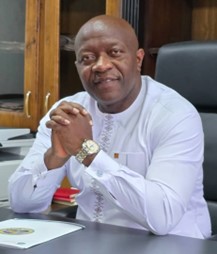The University of Liberia (UL) is undergoing a significant financial restructuring spearheaded by the Liberian government, aiming to address what the Ministry of Finance and Development Planning (MFDP) considers an unsustainable salary burden. Currently, a staggering 94% of the university’s US$34 million government subsidy is allocated to personnel costs, leaving a mere 10% for operational expenses. The MFDP has mandated a drastic reduction in personnel spending from 90% to 55% of the total budget, with the aim of increasing operational funds to 45%. This move is intended to ensure the university’s long-term financial stability and allow for necessary investments in its infrastructure and academic programs. The restructuring efforts are being supported by the General Auditing Commission (GAC), which recently conducted a headcount to identify and eliminate ghost workers, duplicate entries, and other payroll discrepancies. This audit is a crucial step in streamlining the university’s payroll and ensuring the efficient use of public funds.
The financial overhaul comes amidst a complex backdrop of escalating tensions between the university administration, faculty, and students. The University of Liberia Faculty Association (ULFA) recently initiated a strike, withdrawing from all academic activities until their demands, outlined in a long-delayed Collective Bargaining Agreement, are met. These demands include salary parity, improved sanitation, faculty promotions, social security enrollment, and the resolution of outstanding grievances. The strike has effectively shut down the university, disrupting the academic calendar for thousands of students and further exacerbating the institution’s challenges. Concurrently, the Student Unification Party (SUP), a prominent student political group, has staged protests demanding improved campus conditions and the resignation of UL President, Dr. Layli Maparyan. These protests have heightened tensions on campus and led to clashes with law enforcement.
The UL administration, while acknowledging the concerns of both faculty and students, has urged a return to work and dialogue. The Board of Trustees has affirmed its commitment to addressing the issues raised by ULFA, emphasizing the importance of academic continuity. President Maparyan has reiterated her vision for a more effective and efficient university, promising transparent and ethical implementation of ongoing reforms, prioritizing the well-being of both staff and students. This challenging situation requires a delicate balance between addressing the legitimate concerns of faculty and students, while also implementing necessary financial reforms to secure the university’s future.
Minister Ngafuan has criticized UL’s request for an additional US$550,000 in off-budget allocation submitted to the Senate Committee on Education. This request aims to cover salary arrears for adjunct faculty, unpaid dues from the previous vacation semester, and urgent bathroom renovations. Ngafuan argues that such requests should be directed through the proper channels, not the Senate Committee, and maintains that the university has already received nearly its full allocated budget for 2024. He has assured that the necessary funding will be made available, though he did not specify a timeline. This disagreement highlights the complex financial relationship between the government and the university, and further underscores the need for transparent and accountable financial management within the institution.
The financial restructuring at UL is not simply a matter of budget reallocation; it represents a fundamental shift in the university’s operational model. The reduction in personnel spending necessitates a comprehensive review of staffing levels, potentially leading to difficult decisions regarding redundancies and retirements. While the UL administration has stated that any retirement-related decisions will be handled confidentially and in accordance with national laws, the process is likely to be fraught with challenges and potential resistance from affected employees. The success of the restructuring will hinge on the ability of the administration to navigate these sensitive issues while maintaining transparency and fairness.
The converging pressures of financial restructuring, faculty strikes, and student protests have created a critical juncture for the University of Liberia. The institution’s ability to address these challenges effectively will determine its future trajectory. The ongoing dialogue between the administration, faculty, and students offers a glimmer of hope for a resolution, but the deeply rooted issues of financial sustainability, faculty welfare, and student concerns require significant and sustained effort to overcome. The success of the restructuring hinges not only on sound financial management but also on fostering trust and collaboration among all stakeholders to ensure the long-term viability and success of the University of Liberia.














